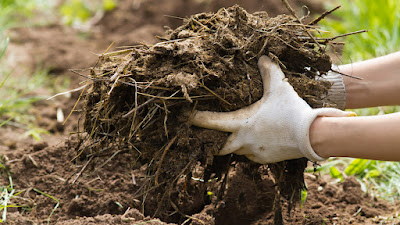Organic Fertilizers: The Magic Solution for a Thriving Garden
Are you tired of spending your hard-earned money on chemical fertilizers that promise a lush and green garden, only to be disappointed with lackluster results? Have you ever considered switching to organic fertilizers? Not only are they safer for the environment, but they also provide numerous benefits for your plants. In this article, we will delve into the magic of organic fertilizers and why your plants deserve the best.
Firstly, let's define what organic fertilizer is. Organic fertilizers are derived from natural sources such as plant and animal waste, bone meal, and compost. These fertilizers are rich in nutrients such as nitrogen, phosphorus, and potassium, which are essential for plant growth. Organic fertilizers also contain micronutrients such as calcium, magnesium, and sulfur, which are often lacking in chemical fertilizers.
One of the main benefits of using organic fertilizers is that they improve soil health. Soil is the foundation of any healthy garden, and organic fertilizers help to promote soil fertility by providing the necessary nutrients and organic matter. This, in turn, improves soil structure, water retention, and aeration, allowing plants to grow strong and healthy.
Another benefit of organic fertilizers is that they promote plant growth and development. Organic fertilizers work slowly and steadily, providing a continuous supply of nutrients to plants. This results in steady and consistent growth, rather than the sudden bursts of growth that can be seen with chemical fertilizers. Organic fertilizers also promote root growth, which is crucial for healthy plants. Stronger roots mean better nutrient absorption, water uptake, and overall plant health.
Organic fertilizers also have a positive impact on the environment. Chemical fertilizers can be harmful to the environment and contribute to pollution and soil degradation. Organic fertilizers, on the other hand, are made from natural sources and do not contain harmful chemicals or synthetic additives. They are also biodegradable, meaning they break down naturally over time and do not accumulate in the soil.
In addition to the benefits mentioned above, organic fertilizers also improve the flavor and quality of crops. This is particularly important for edible plants, as the nutrients provided by organic fertilizers can enhance the taste and nutritional value of fruits and vegetables.
So, now that we've established the benefits of organic fertilizers, how can you incorporate them into your garden? The easiest way to start is by composting. Composting is the process of decomposing organic matter such as food scraps, leaves, and grass clippings into a nutrient-rich soil amendment. Compost can be added to garden beds, used as mulch, or mixed with potting soil to provide plants with a continuous source of nutrients.
Another way to incorporate organic fertilizers is by using organic fertilizer blends. These blends are made up of a mixture of natural ingredients such as bone meal, blood meal, and kelp, and can be added to the soil or used as a top dressing around plants. There are many different types of organic fertilizer blends available, each with their own unique blend of nutrients.
In conclusion, organic fertilizers are a safer, healthier, and more sustainable option for your garden. They improve soil health, promote steady plant growth, and have a positive impact on the environment. By incorporating organic fertilizers into your gardening routine, you can create a healthy and thriving garden that will provide you with fresh, delicious produce for years to come.
Labels: farming, Interesting, science, Technology


0 Comments:
Post a Comment
Subscribe to Post Comments [Atom]
<< Home